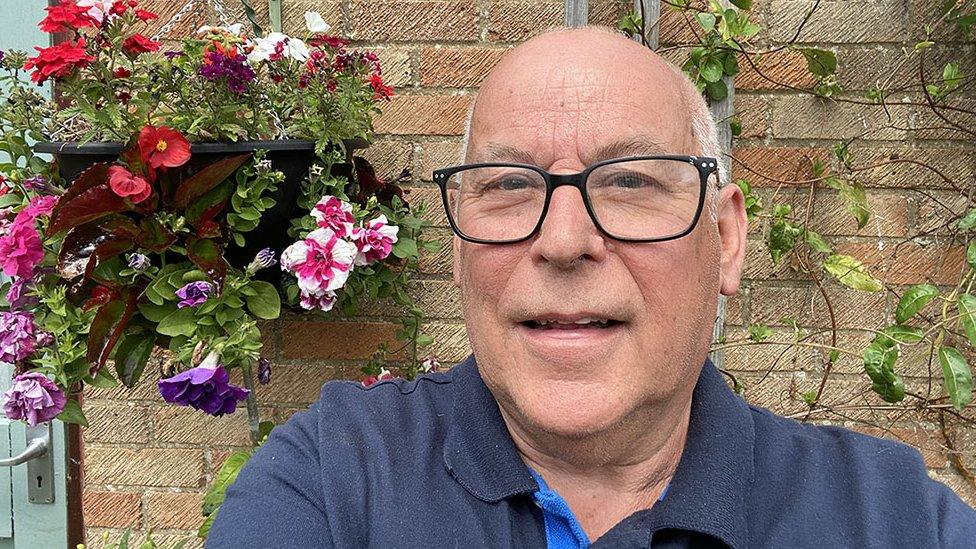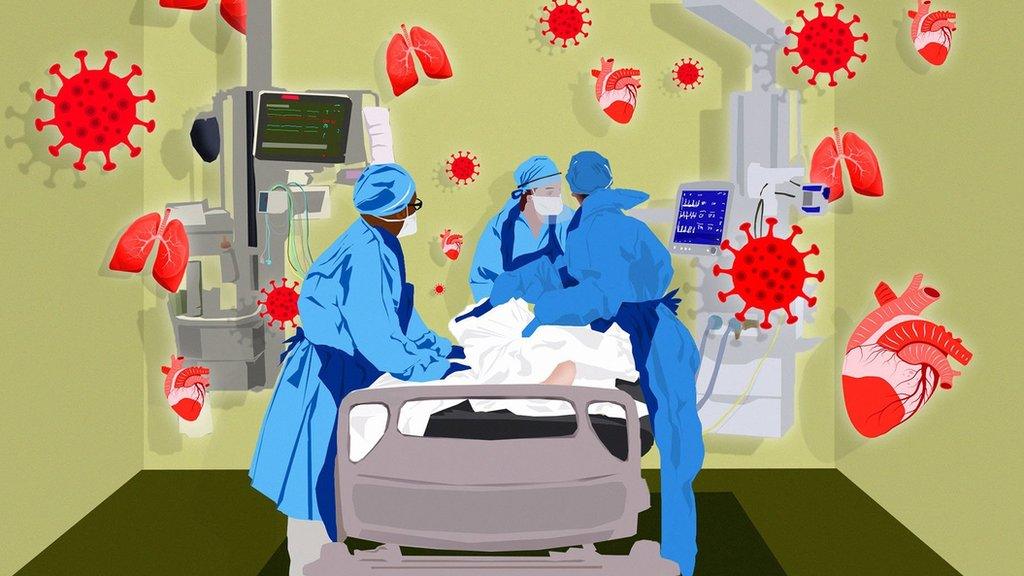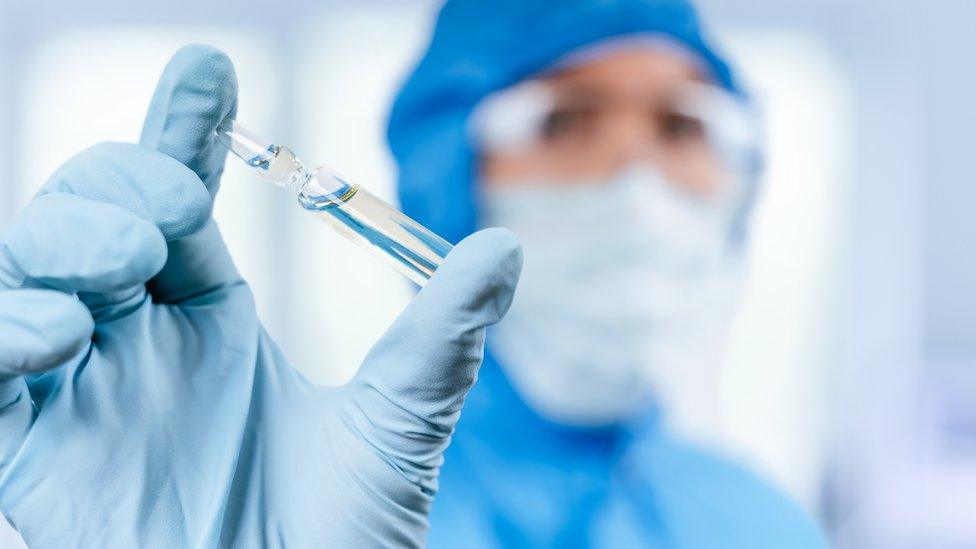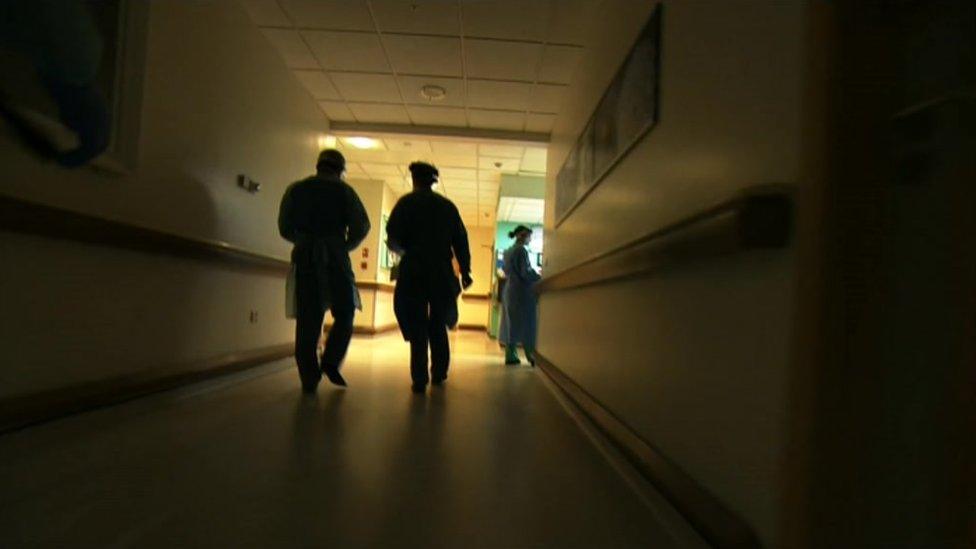Coronavirus: 'Dexamethasone may have helped save my life'
- Published

Pete Herring said his life was in the balance when he was given the trial drug
A man who was "touch and go" in intensive care and given a Covid-19 trial drug has said it was "exciting" a breakthrough treatment has been found.
Pete Herring, 69, was treated with the low-cost steroid dexamethasone in Addenbrooke's Hospital, Cambridge.
Dexamethasone has been shown to cut deaths by a third for patients on ventilators and a fifth for those on oxygen.
"Maybe this drug helped to save my life," said Mr Herring.
"It is very exciting news to hear that researchers have found a treatment that works.
"I know it was touch and go for me at one point."
Mr Herring, who lives in Cambridgeshire, was admitted to Addenbrooke's with Covid-19 at the end of April and spent five days in intensive care.
He was given concentrated oxygen through a mask, as well as the trial drug.
Mr Herring was one of 2,000 severely ill patients given the widely available steroid as part of the trial.
The Oxford University-led project is the world's biggest trial to test existing treatments to see if they also work for coronavirus.
Addenbrooke's has been recruiting patients since March.
Experts have said the low-dose steroid treatment - which reduces inflammation in other conditions - has been the first major drugs breakthrough in the coronavirus fight.
England's Chief Medical Officer Prof Chris Whitty said it will "save lives around the world".
Allow X content?
This article contains content provided by X. We ask for your permission before anything is loaded, as they may be using cookies and other technologies. You may want to read X’s cookie policy, external and privacy policy, external before accepting. To view this content choose ‘accept and continue’.
Researchers believe if the steroid - used since the 1960s to treat a host of diseases - had been given to UK patients at the start of the pandemic, 5,000 people could have been saved.
Addenbrooke's consultant Dr Martin Knolle, who is in charge of the trial in Cambridge, said: "This is wonderful and uplifting news for patients suffering from this terrible illness.
"Ongoing trials will look to build on these exciting findings."


GLOBAL SPREAD: Tracking the pandemic
EUROPE LOCKDOWN: How is it being lifted?
THE R NUMBER: What it means and why it matters

- Published15 June 2020

- Published16 June 2020

- Published23 April 2020
